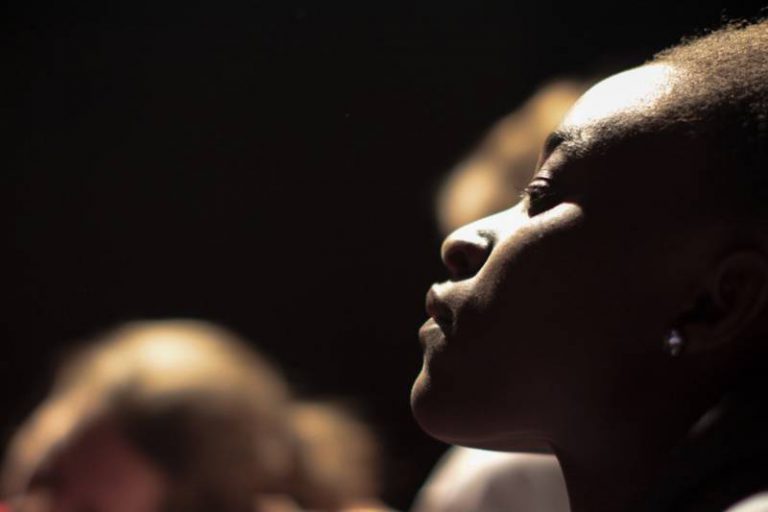The Bacchae, Euripides’ masterpiece, and one of the most challenging plays of the ancient Greek theatre is featured in this year’s Melbourne Festival program. But anyone thinking about a classical production should think again.
“Dionysus was a god that liberated people through wine and ecstasy. Nowadays we are so trapped in a hyper-capitalist world that it is not rebellious to drink and dance till dawn. Capitalism actually asks us to do that”.
“We decided early on to go for a contemporary approach, “explains Aaron Orzech, co-conceiver of this creative adaptation of Euripides’ seminal play with Adena Jacobs directing. This is the second time in just a few weeks that these two names appear united in relation to an ancient Greek play, as they worked together, Jacobs as director, Orzech as an actor, for the Malthouse Theatre’s production of Antigone.
“Part of the appeal is that the theatre tradition begins with the Greeks,” says Orzech. “When you are faced with the fundamental questions of form and content, of ideas and morality, sometimes you need to go back to the origins”.

In this case, ‘The Bacchae’ are the basis for a loose, modern adaptation. “We opted for a collaborative approach, based on improvisation and the ideas born when we started working with the girls.”
The ‘girls’ in question are students of St Martins Youth Art Centre – one of the co-producers, along with Jacobs’ Fraught Outfit company and Theatre Works.The fact that the cast is from St Martins gives this production a youthful, adolescent energy. Jacobs and Orzech have worked with the youth centre on a previous, critically acclaimed, production of Frank Wedekind’s ‘On the Bodily Education of Young Girls’.
“That play had a quiet, poetic quality”, says the dramaturg.

“We wanted to use the same group of teenage girls in a setting of chaotic energy”. Apparently, ‘Bacchae’ is the ideal vehicle for that. A play of constant transformations, with a series of challenging themes at its centre – between the rational and the mystical, order and wilderness, the nature of gods and humans – it has for centuries been the spark for fiery debate.
“The big theme for us was the point where Pentheus (the King of Thebes opposing Dionysian worship) goes to spy on the Maenads,” says Orzech. “A lot of the girls felt connected to that moment of realisation that they’re being watched. All women know what it feels to be looked at in an aggressive way; they know what a powerful gaze is. It is a kind of violence. This gave us the chance to talk about what violence is in today’s society.
“In Bacchae, Pentheus is slaughtered by the Maenads, they dismember him. In our society, we are dismembered by looks”. The concept of violence is not the only theme central to this production of The Bacchae.
There is the echo of feminism, with the story of this group of women given power by their god, only to have this taste of freedom disappear in the end. “There’s a fixed role for teenage girls in our society and we wanted to challenge that assumption”. The Bacchae is of course the only ancient Greek tragedy with a god as the central character, which is the cause for other kinds of reflection.

We talked about what gods do we believe in, now, to whom do we pray; to capitalism, to consumerism, to advertisement. Our relationship to certain products is almost mystical”, says Orzech.
“In ancient times, Dionysus was a god that liberated people through wine and ecstasy. Nowadays we are so trapped in a hyper-capitalist world that it is not rebellious to drink and dance till dawn. Capitalism actually asks us to do that. Rebellion is packed and sold to us as a product”. This is exactly what this teenage group of Bacchae represent – a kind of lost freedom, opposed to the world of strict order, represented by the theatre setting itself, with its norms and conventions.
Orzech says that the audience is guided to see things from Pentheus’ perspective. Does this mean that the viewers are expected to be scandalised by the teenage girls, as was the oppressive king, desiring order?”I hope some will be,” he says laughing. “Some will get great enjoyment from the liveliness of these girls. Some will feel uncomfortable, some will be offended; everyone should feel something and see themselves transformed by the act of watching”.
Transformation of course is another of the play’s themes. In the end all characters of the play have mutated. “And all are punished”, notes Orzech, “except for Dionysus”. According to the ‘consumerism as religion’ analogy, does this mean that in the end, the only unpunished is capitalism? The dramaturg laughs at the observation, choosing to leave some things open to interpretation.
*The Bacchae, produced by Fraught Outfit and Saint Martins Youth Arts Centre at Theatre Works, St Kilda, runs from 8-25 October. Tickets available from Ticketmaster.